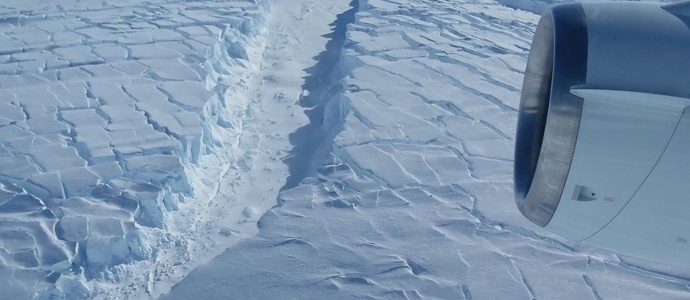A Huge Chasm has Opened Up Under Antarctica’s Most Important–and Vulnerable–Glacier
An enormous cavity two-thirds the area of Manhattan and nearly 1,000 feet (300 meters) deep has been discovered growing under West Antarctica’s Thwaites Glacier. Considered to be the world’s most crucial glacier due to its sheer size and importance to the stability of the vast ice sheets that surroundread more
